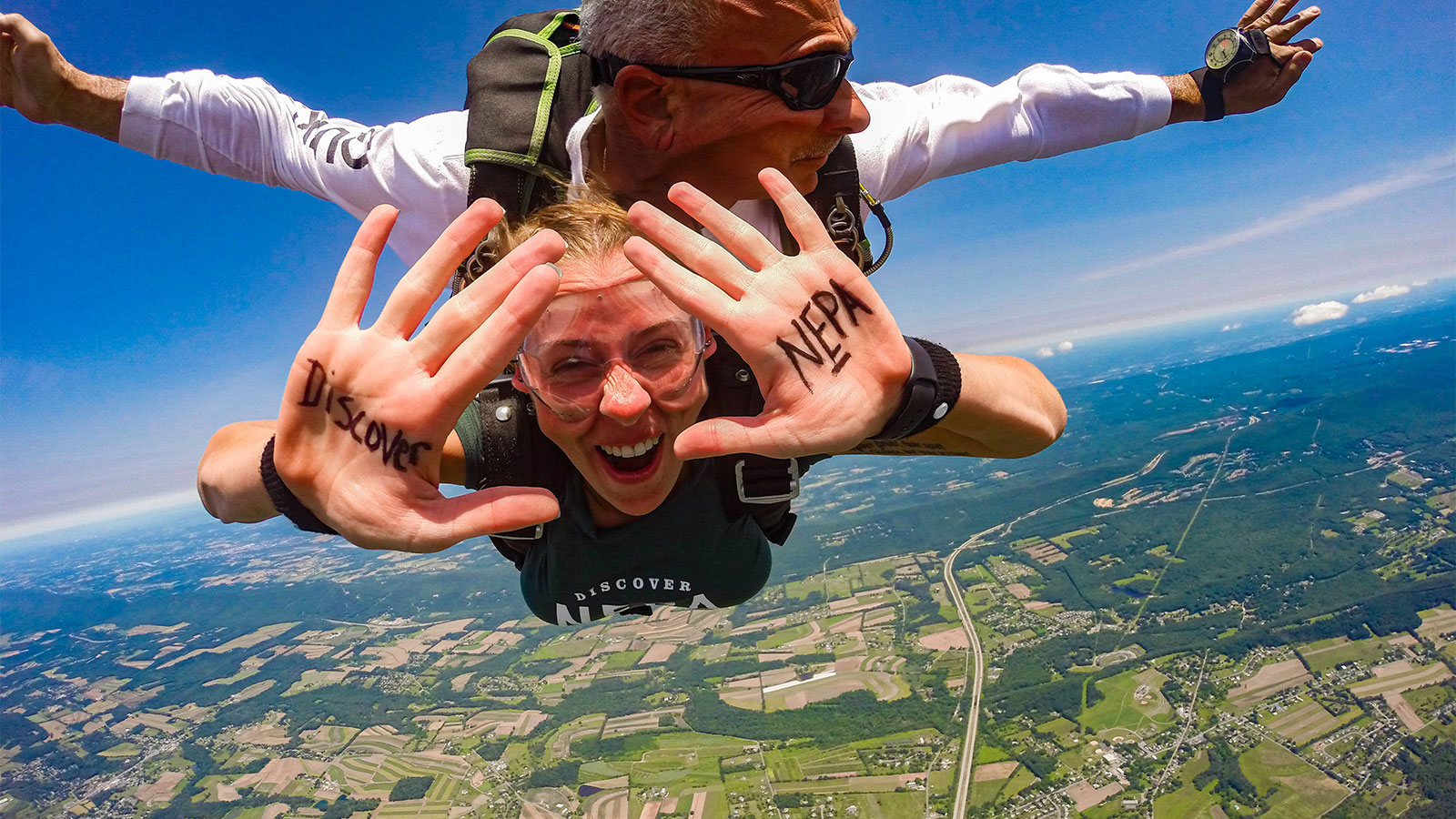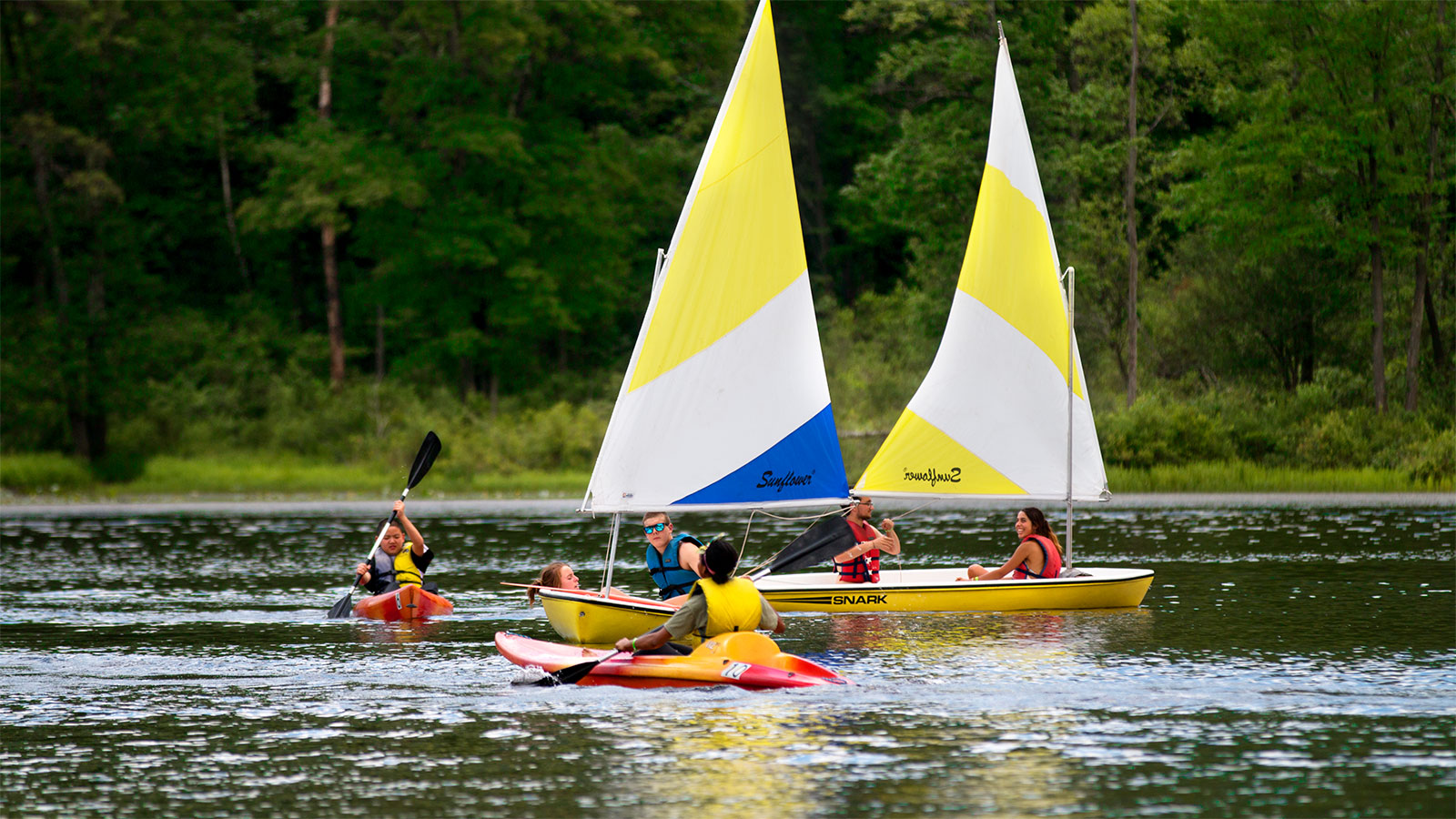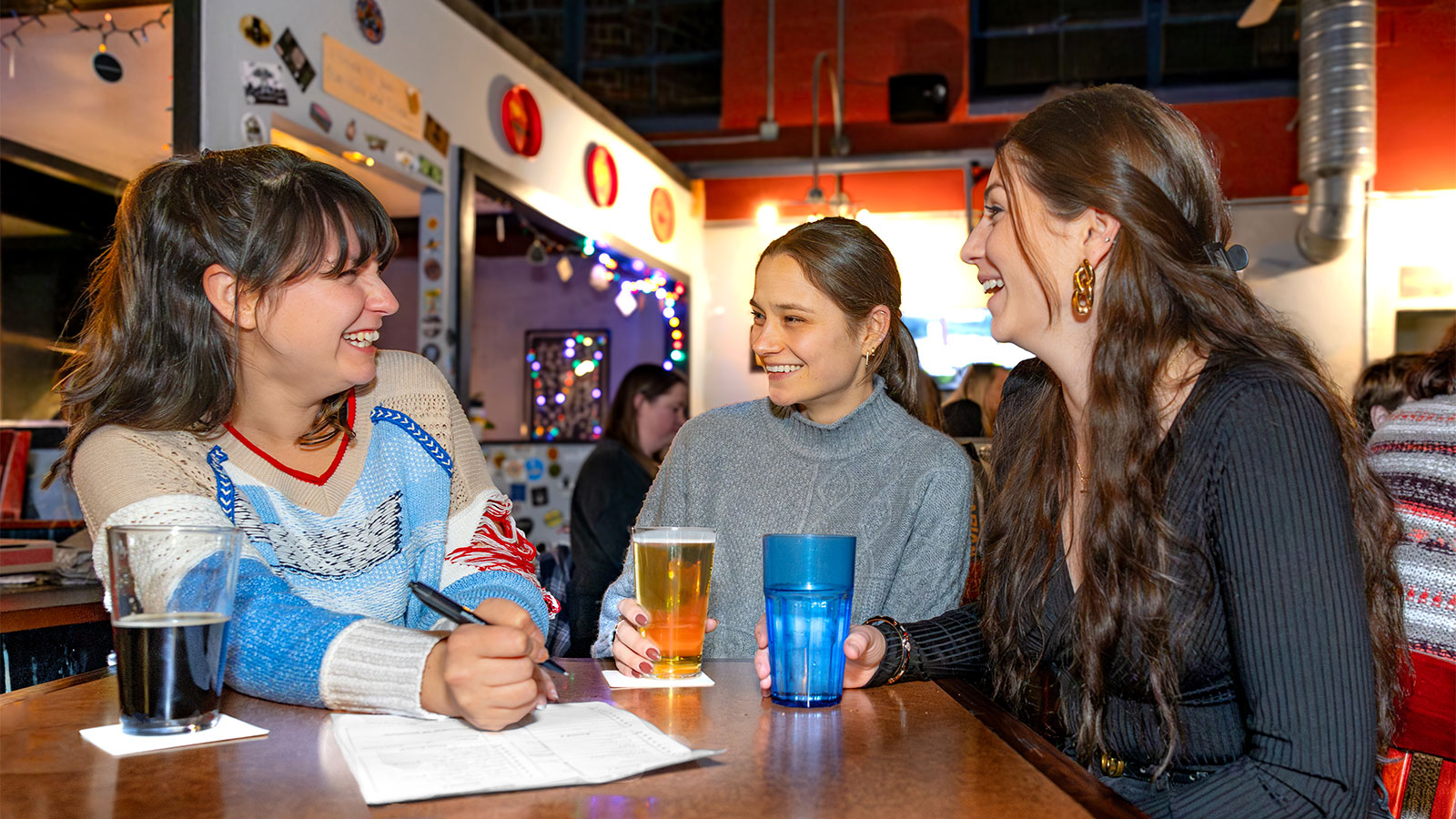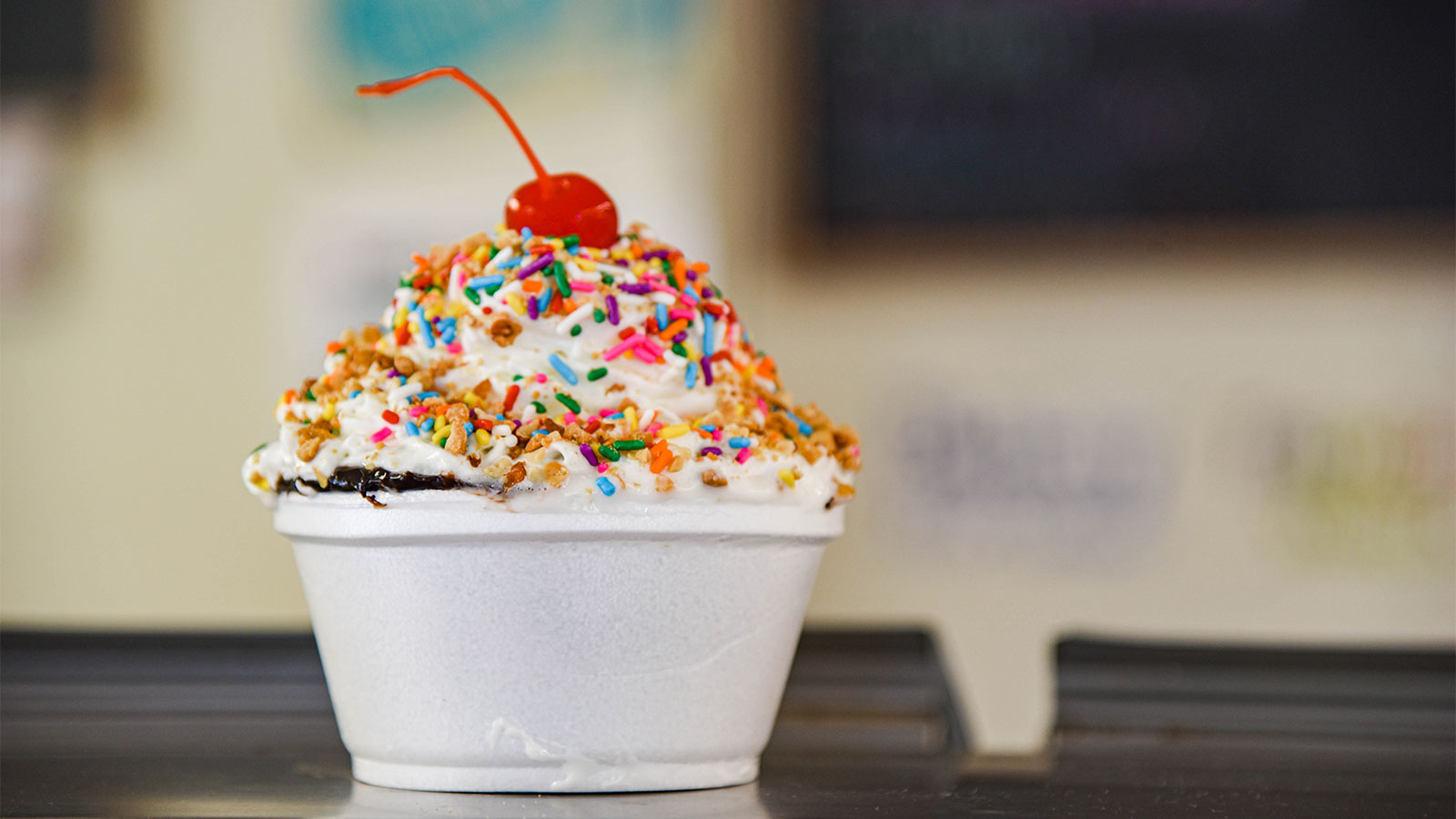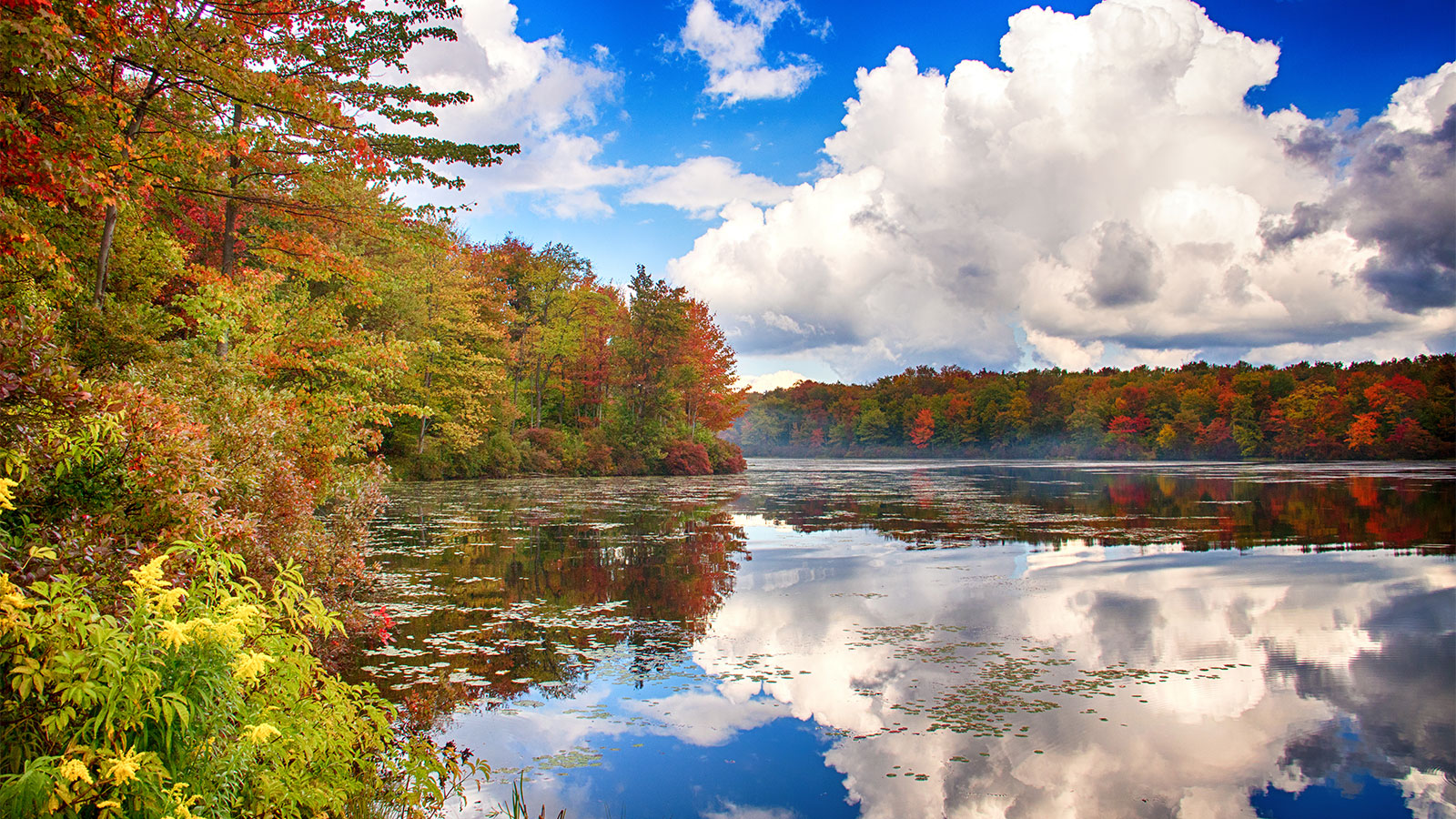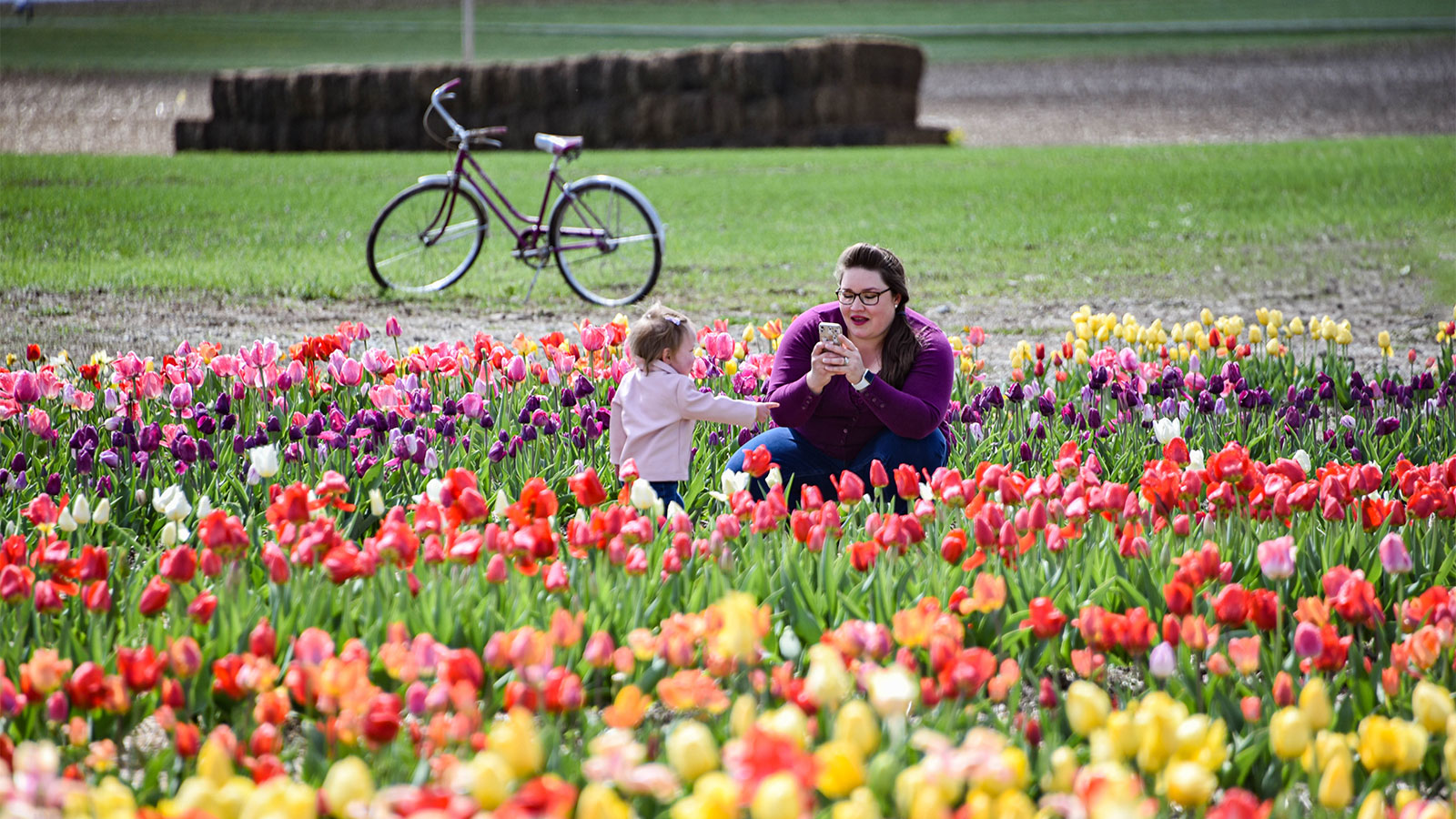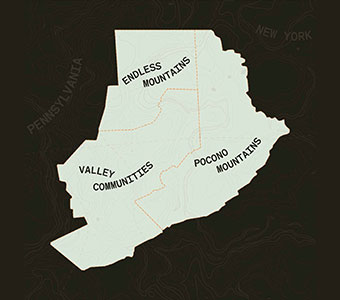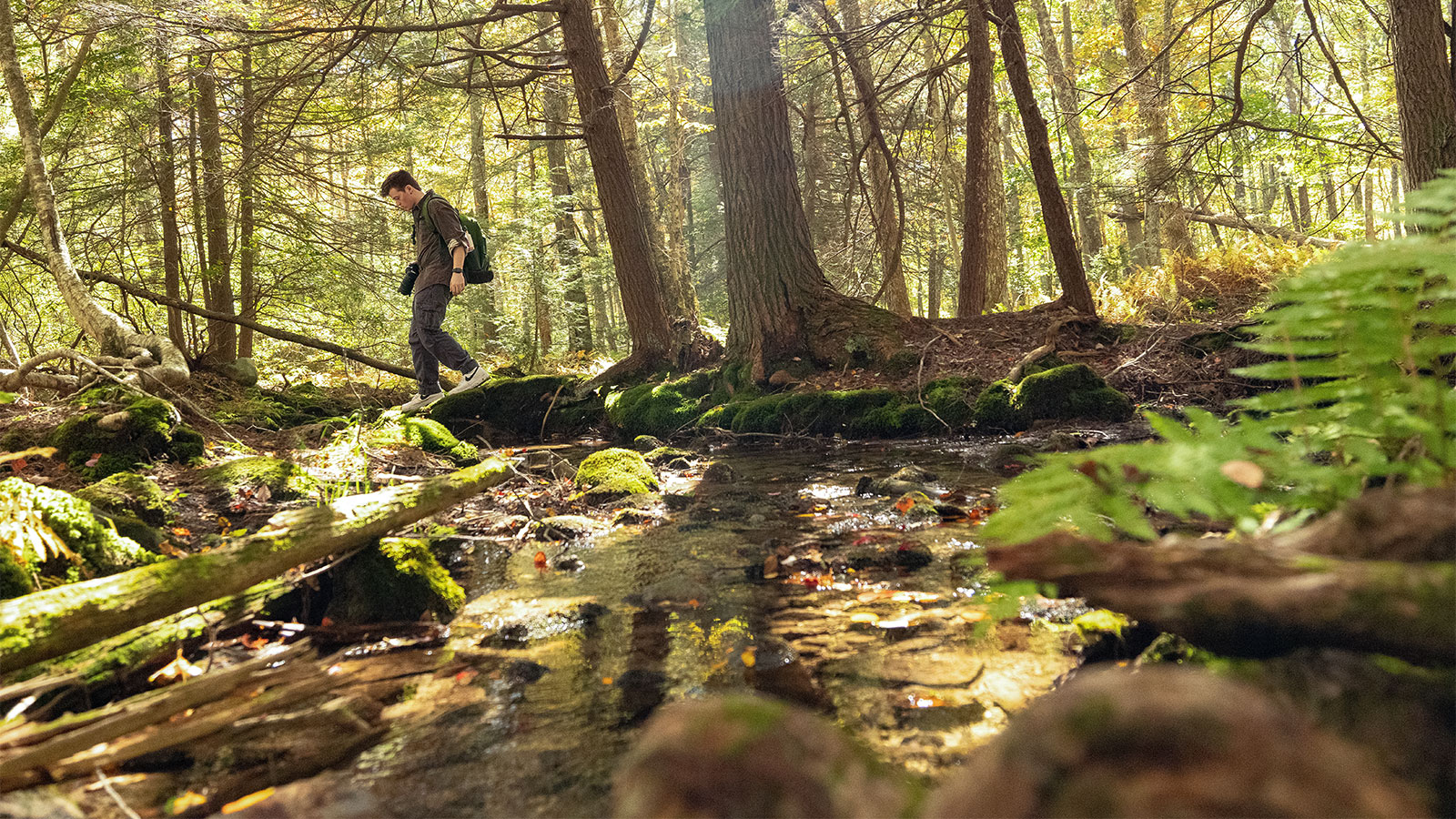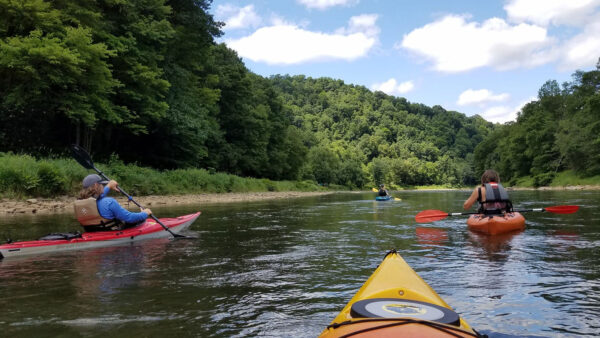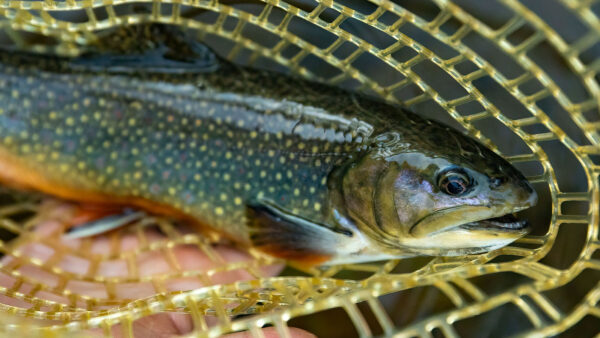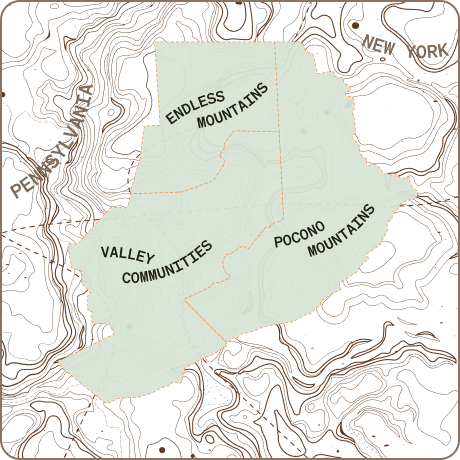Stroudsburg-Based Nonprofit on Mission to Return NEPA’s Orphaned and Injured Wildlife Back into the Wild

Rescue, Rehabilitate, Release
The Wilderz at Pocono Wildlife, formerly Pocono Wildlife Rehabilitation and Education Center, took on its first case in 1983. Then, the small Tobyhanna-based center began rescuing and caring for all species of injured or orphaned wildlife throughout Northeastern Pennsylvania. There were few places they wouldn’t go to save and rehabilitate animals. The center’s expansive, 10-county reach brought in just about every critter you could imagine from Carbon, Monroe, Pike, Wayne, Northampton, Lehigh, Lackawanna, Luzerne, Susquehanna and Wyoming counties.

Addressing a growing need in the community.
While their ambition appeared limitless and their daily efforts both perpetually exhausting and rewarding, the center’s only major obstacle at the time was its size. Kathy Uhler, Pocono Wildlife’s founder, former Executive Director and current Educational Director, moved the center to a sprawling Nature Conservancy-owned farm in Stroudsburg in the mid 90s. There, they expanded and built new enclosures, added a brand-new medical clinic and office space. Several years later, they were able to purchase the farm. Today, the idyllic, Cherry Valley location serves as one of the most highly-regarded wildlife rehabilitation facilities in Pennsylvania.

“Half the time, it’s dangerous as heck, and the other half, it’s just crazy.” — Susan Downing, Co-Executive Director, The Wilderz at Pocono Wildlife
Now, 40 years later, the newly-transitioned Wilderz at Pocono Wildlife may be changing names, but the mission and the dogged dedication remain. Uhler has taken a step back to focus on the educational side of things – her lifelong passion. Co-Executive Directors, Susan Downing and Janine Tancredi have assumed the helm. Regarding the name change, Downing notes, “Janine and I got our start in capture and transport and really began to make a name for ourselves.” She continues, “We’d just go after anything and everything. Every rescue seemed like some mad adventure – traipsing through God only knows what, getting covered in all manner of nasty things.” Downing and Tancredi, often faced with real danger and seriousness in their rescue endeavors, discovered sometimes the only way through it all was to seek out the strange humor of the situation. “Sometimes there was little we could do but laugh hysterically at ourselves in the process. We would get to a point where we were like, This is just wild. And that’s when we started calling ourselves The Wilderz.”

A tireless, nonstop, yet necessary endeavor.
Alongside Downing, Tancredi and Uhler, an undaunted team of clinicians, educators, volunteers and interns keep the seemingly 24/7 center churning. Not a single day passes where a passel of abandoned baby possums, injured squirrels, or birds with broken beaks and wings aren’t showing up at the door. And if it ever seems slow, it’s because the team has hopped in the van and headed out for an emergency rescue. The sprawling facility houses multiple indoor and outdoor habitats, a quarantine building, a fully-functioning wildlife clinic and offices. That’s a lot of ground to cover and plenty of daily feedings, wellness check-ups and enclosure cleanings. And they do it all with a paid staff of six, several volunteers and the occasional intern.

Help for all NEPA’s creatures big and small.
We visited the Wilderz at Pocono Wildlife on a chilly Tuesday in early December. The sun had just started baking the morning fog off the surface of the pond. The farm was quiet. Cherry Creek, running fat with late autumn rains, poured into the valley joining a chorus of waking nature. A scattering of out buildings, barns and a farmhouse butted up to a dense, forested hillside. A pair of volunteers toiled near some of the distant enclosures, the morning feeding well underway. Their movement against the greens, browns and grays of the dappled valley slope broke the morning stillness. Soon, we would find ourselves grateful for swallowing up this one brief moment of peace.

A wild experience through and through.
We entered the main clinic building. Einstein, a rare, albino American Crow, welcomed us to a scene of measured chaos. Feedings, crate cleanings and morning meds ensued. Blossom, a rotund Virginina Possum, milled about stealthily underfoot. Squirrels barked. Birds chirped and cawed for our attention. In the midst of it all, two clinicians danced in and around each other opening cabinets and cages, pouring food into dishes, handling creatures, prepping meds in some wildly choreographed routine. On a heightened perch, a majestic barn owl watched approvingly over the scene.

Giving every injured, abandoned or orphaned wild animal a chance.
“We don’t say no,” Downing says with a laugh. The center takes in well over 3,000 sick, injured or abandoned animals every year. “Unfortunately, during Covid, a lot of the nearby facilities had to shut their doors, or decided they wouldn’t take certain animals.” She continues. “That kind of left us as the only place to call, and we’ll take any case. Because if we don’t, it’ll be left in the public’s hands and that’s often not a good situation.”
The Wilderz will accept most wild animals that are brought to the center. And if they can’t be brought in, Downing and her team will perform a capture and transport on location. “That does not include your average neighborhood cat or dog,” Downing remonstrates. “Unfortunately, we are not allowed to even have them on the property.” The Wilderz staff works closely with Wildlife in Need, the capture and rescue organization for the PA Game Commission. Susan, Janine and most of the staff are PA licensed Wildlife Rehabilitators. They work directly with the U.S. Fish & Wildlife Service, the U.S. Dept. of Agriculture, PA Fish & Boat Commission and the PA Game Commission.

The Wilderz at Pocono Wildlife is purely a wildlife rehabilitation facility.
At any given time during the year, the clinic and interior/exterior habitats are full of wildlife waiting to be returned to the wild. And if, for any number of reasons, they’re deemed not suitable for release, they join the team as a wildlife rehabilitation ambassador. Full rehab and release are the overarching goals at The Wilderz where the most common visitors include birds with broken wings and baby squirrels and rabbits. “We see more birds than anything else,” Downing says. “In the spring, though, we do get so many baby squirrels and bunnies that have fallen or strayed from their nests, or have been injured by lawn mowers.” The facility currently houses coyotes, foxes, bobcats, reptiles, possums, various birds including crows, eagles, owls and hawks. And in recent months, they’ve also successfully rehabbed raccoons, flying squirrels, mink and even bears. In fact, The Wilderz is the only facility in NEPA that rehabilitates bears.

Treating wildlife from all possible approaches.
For Downing and her team, treating wildlife in the most humane way possible is all about keeping up with training and technology. “We choose life in all instances,” Downing says. “If we can keep an animal alive without suffering, that’s what we do always.” This results in a rather impeccable rehab and release rate for The Wilderz. It also helps to have a bit of technology on your side. “One of the first things we did was get our own X-Ray machine.” Downing beams. “It cuts down on so much time spent waiting for results from our vet. It allows us to assess and treat immediately and that’s crucial when it comes to getting animals back into the wild where they belong.” Her tone briefly saddens. “Like most cases in medical treatment, the longer they’re here with us, the less likely they are to make it back to the wild, or even survive for that matter.”
We are a total nonprofit. We rely on donations to keep this place running full-time — to keep it supplied with food and meds and everything the animals need. And we have the best volunteers working with us, but trying to do what we do with just a team of volunteers is absolutely impossible. We also have certified professionals working here full-time, and we have to pay them a salary. They deserve a salary.

Keeping the community informed and educated about the wildlife around them.
It’s not all just about the animals at The Wilderz. Education is a major component to their everyday routine. If they’re not rescuing, transporting or treating animals, they’re offering educational programs for the public. “There’s so much that people just don’t understand about wildlife,” Downing says. One example of such misunderstanding that often bothers The Wilderz team is the old adage about baby birds falling out of nests. “It’s a big myth that you can’t return a baby bird to their nest.” She continues. “It’s just not true, and it’s one thing we’re always trying to educate the public on. If you come across a baby bird and you can see and reach the nest safely, put it back. They’ll be fine. Their mother won’t reject them.”

Education through live, interactive experience.
Throughout the year, Downing, Uhler and their team of wildlife ambassadors and experienced presenters offer plenty of wildlife education programs. They frequently present to Scout Troops, schools, community organizations, libraries, state and national parks and many more. The educational programs include live animal demonstrations with reptiles, birds and various mammals. The light-hearted, interactive programs are designed to engage all audiences from pre-k to senior citizens. The educational presentations can be tailored to meet the needs and requirements of private parties or public audiences. They are fully mobile, insured and licensed by the U.S. Fish & Wildlife Service, U.S. Dept. of Agriculture, PA Game Commission, and PA Fish & Boat Commission. The Wilderz at Pocono Wildlife also offers on-site tours and small-group presentations by appointment at their Stroudsburg facility.
Support The Wilderz at Pocono Wildlife Rehabilitation
The Wilderz at Pocono Wildlife is a 501(c)(3) organization. They rely entirely on donations to pay staff salaries, provide food, meds, veterinary treatment and clean, safe habitats for the wildlife on-site. They also host various room and board internships throughout the school year. The support of the community in NEPA is an integral part of everything they do at The Wilderz. It’s also part of their mission to give back to the community through service and education.
You can also do your part to support The Wilderz by offering much-needed supplies, volunteering, spreading the word about what they do and, of course, by being kind to all wildlife that crosses your path.
